Are you a property owner looking to clarify balcony usage rules for your tenants? Establishing clear guidelines can help maintain a harmonious living environment and ensure everyone enjoys their space responsibly. Balconies can be wonderful areas for relaxation and socializing, but without some ground rules, things can get a bit chaotic. If you're interested in creating a well-structured letter to convey these guidelines, keep reading for detailed tips and a helpful template!
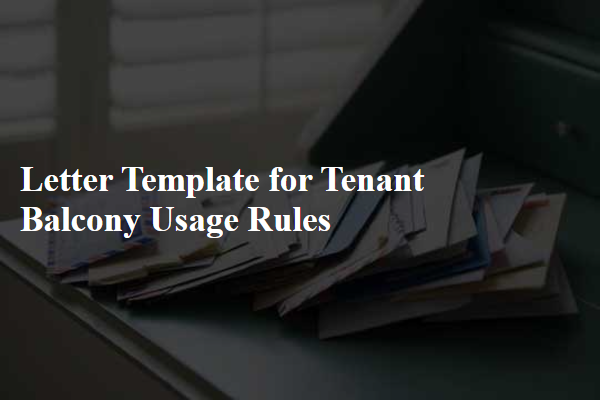
Purpose and Usage
Balcony usage regulations are essential for maintaining safety and enhancing the overall living experience in residential buildings. The primary purpose of balcony spaces includes leisure activities, such as enjoying fresh air, having family gatherings, or cultivating small potted plants. Usage guidelines emphasize maintaining cleanliness, prohibiting excessive noise, and avoiding hazardous items such as grills or open flames. Furthermore, residents are encouraged to be considerate of neighbors by minimizing disturbances and ensuring balcony furnishings adhere to fire safety regulations. Compliance with these rules fosters a harmonious environment for all tenants while ensuring balconies remain safe and enjoyable spaces.
Maintenance and Cleanliness
Balcony maintenance and cleanliness are essential for preserving both aesthetics and safety in residential environments like apartment complexes. Effective rules should address aspects such as regular cleaning schedules, recommended cleaning supplies, and prohibited items like closed containers (which can attract pests) or flammable materials. Residents are encouraged to use eco-friendly cleaning agents to minimize environmental impact while ensuring that common areas remain visually appealing. Moreover, guidelines should emphasize the need for proper drainage and reporting any structural concerns to property management, ensuring balcony spaces remain functional and safe for all tenants in shared living spaces. Regular inspections can help maintain standards, while reminders of community commitments to cleanliness foster a cooperative atmosphere.
Noise and Disturbances
Balcony usage regulations highlight the importance of maintaining a peaceful living environment for all tenants within residential complexes. Noise levels from balconies, particularly during late-night hours (generally defined as after 10 PM), should remain at a minimum to avoid disturbances to neighboring units. Activities such as loud music, shouting, or excessive gatherings can disrupt the tranquility of the community. Furthermore, it is essential for tenants to be mindful of outdoor conversations, as sound can travel easily in open spaces. Respecting these guidelines ensures a harmonious living experience for everyone, fostering a sense of community within the building.
Safety Regulations
Balconies in residential buildings serve as valuable private outdoor spaces but must adhere to established safety regulations to ensure resident safety and well-being. Specific guidelines outline acceptable usage, including prohibition of barbecues or open flames, restrictions on heavy furniture placement, and limitations on noise to prevent disturbances to neighbors. Additionally, items such as plants or decorations must be securely anchored to avoid hazards during storms or high winds, with particular attention to compliance with local building codes. Regular inspections are often recommended to maintain structural integrity, ensuring that railings and flooring are in sound condition, particularly in older buildings constructed prior to the 2000s. Residents should also be aware of fire escape access, ensuring that balconies do not obstruct emergency exit pathways, which is crucial during fire emergencies in multifamily housing units.
Permitted Items and Decorations
Balcony usage regulations ensure safe and pleasant outdoor spaces for tenants. Permitted items include potted plants (limited to 2-3 per balcony, utilizing lightweight materials), outdoor furniture (such as foldable chairs and tables, not exceeding 50 kg total weight), and decorative lights (LED string lights, battery-operated or solar-powered preferred). Decorative elements must not hinder visibility or create safety hazards. Items like grills or open flames are strictly prohibited due to fire risks, while any permanent installations (such as awnings or satellite dishes) require prior approval from property management. Compliance with these guidelines fosters a harmonious living environment for all residents.

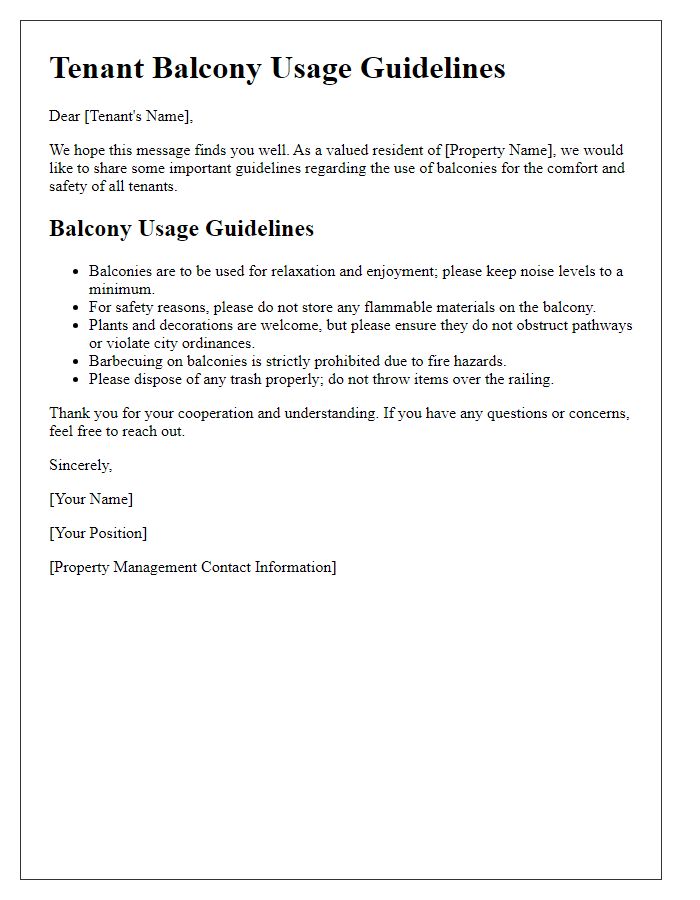
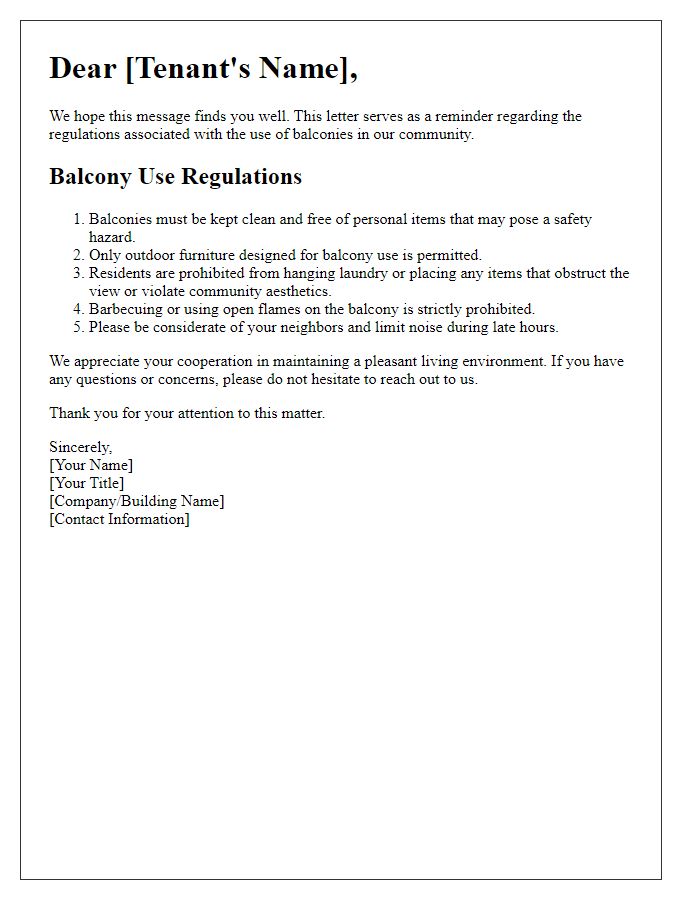
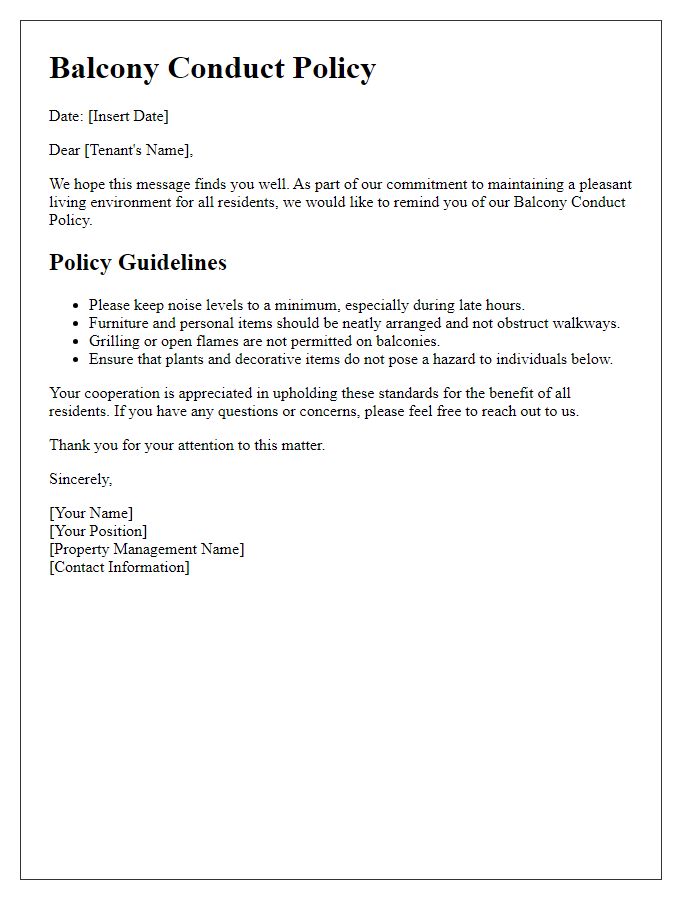
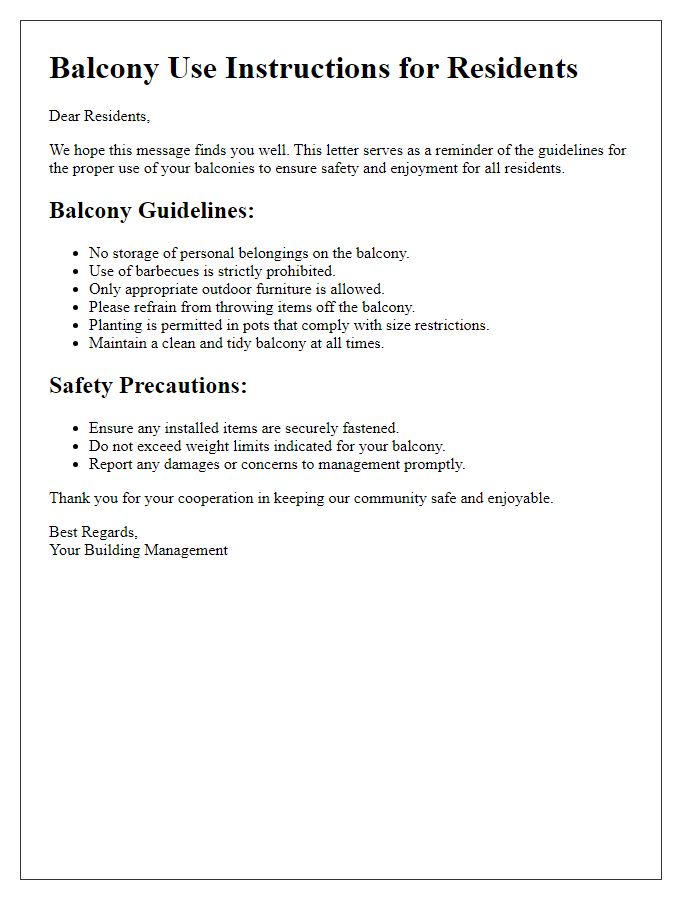
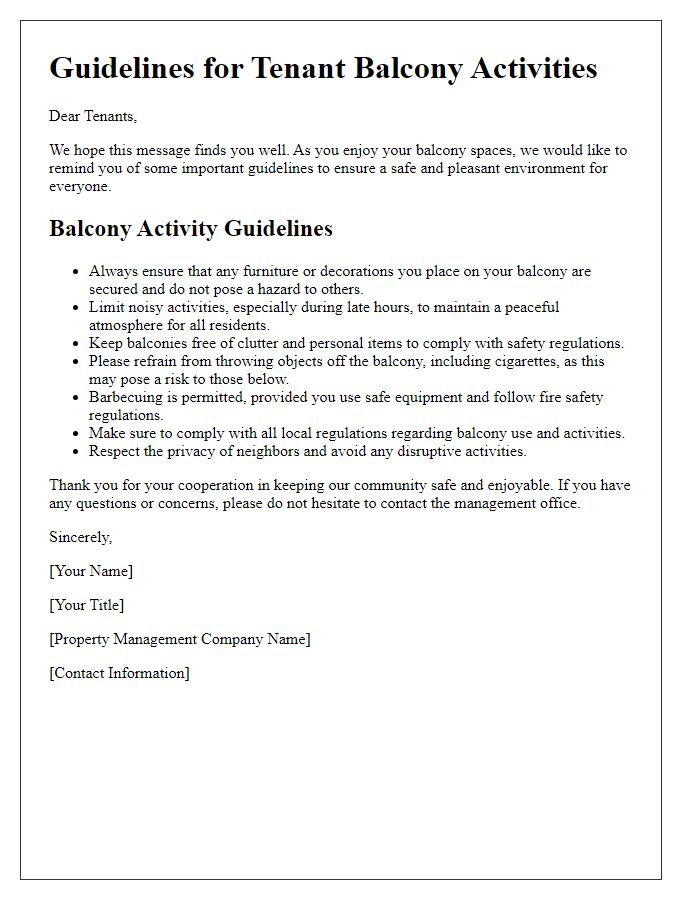
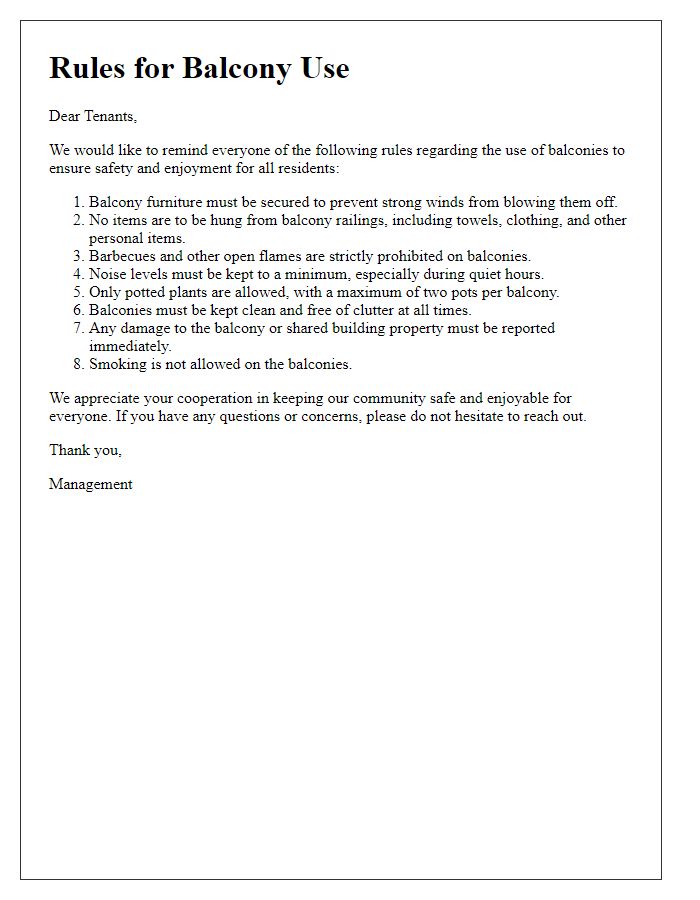
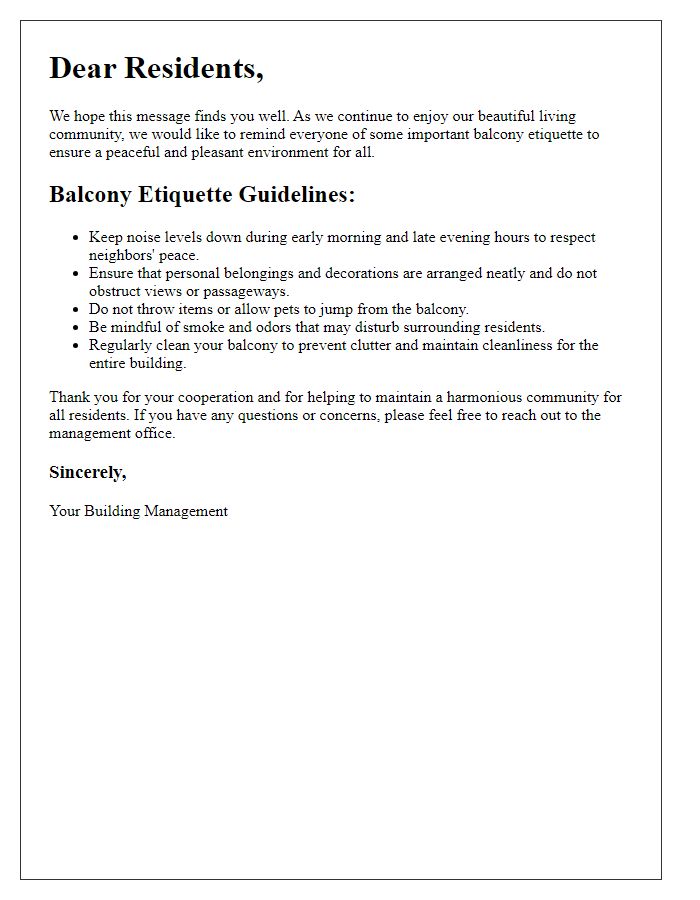
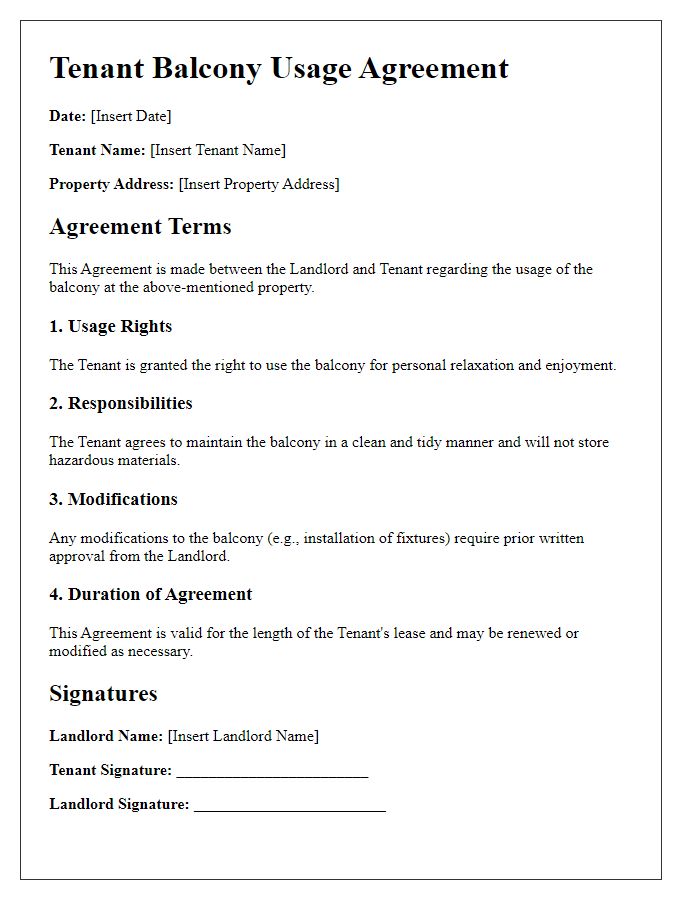
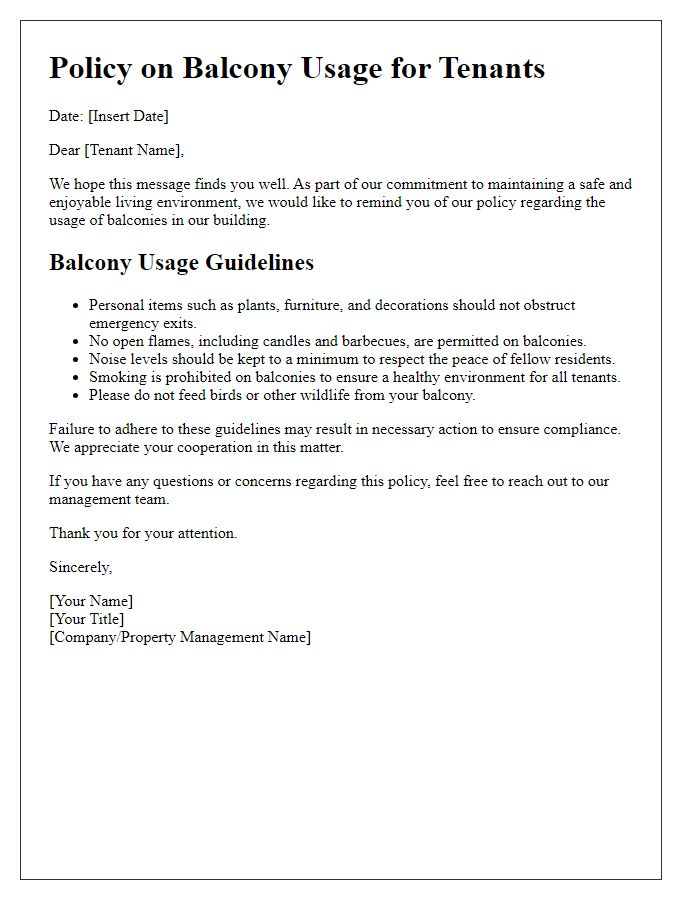
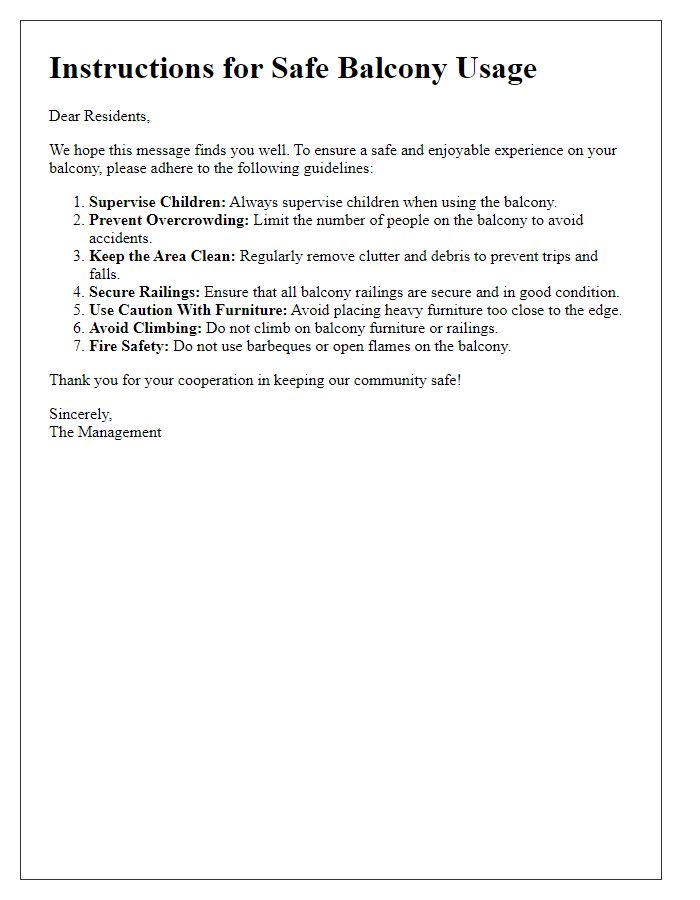

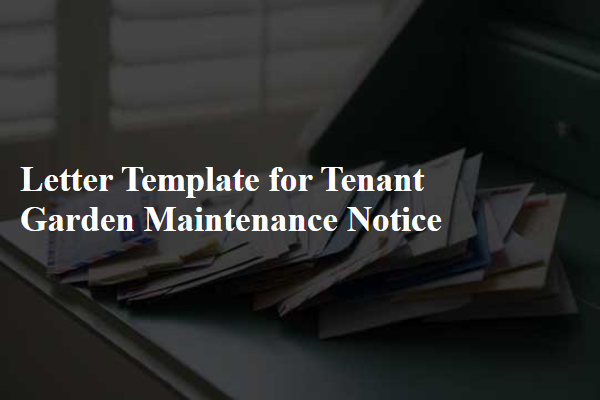
Comments